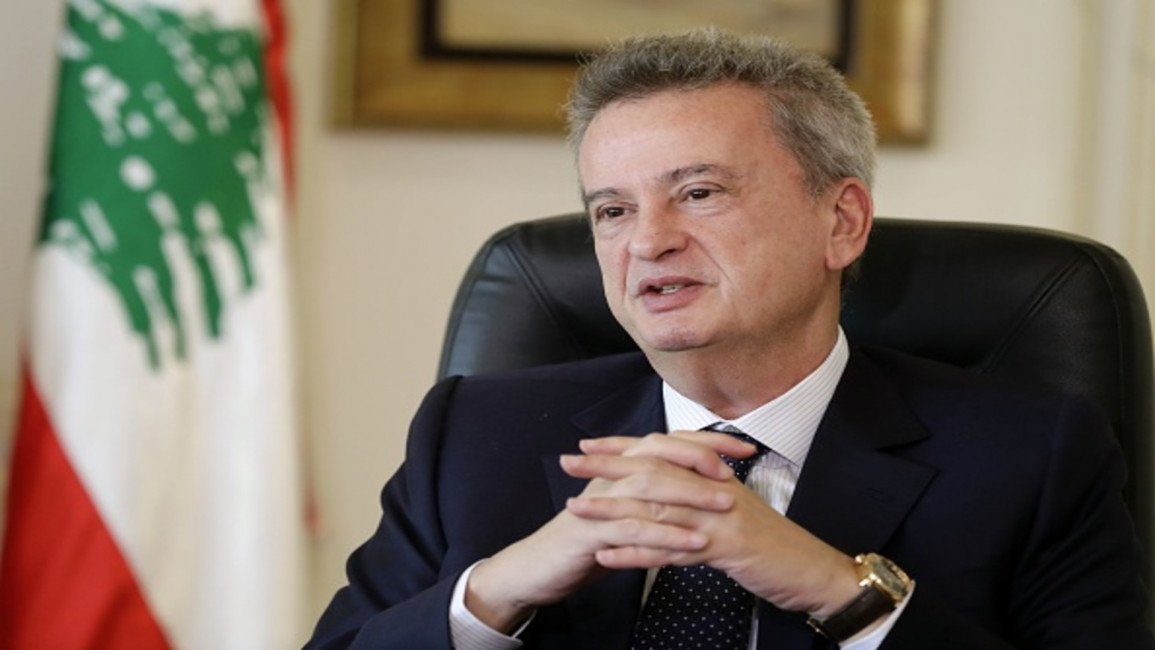US denies weighing sanctions against 'disgraced' Lebanon Central Bank chief
As the Lebanese pound hit a record low this week and protests resumed across the country, a Bloomberg report quoting anonymous sources alleged that Joe Biden’s administration was considering freezing Salameh’s overseas assets and enacting measures that would curtail his ability to do business abroad.
A US State Department spokesperson dismissed the account in an interview with Reuters on Friday, denying that the US administration had ever considered sanctions against Salameh, who led the now cash-strapped monetary authority for 28 years.
In 2019, Salameh won an award for being one of the best central bank chiefs in the world, but has since been accused of embezzlement and corruption.
The Swiss authorities launched an investigation into his activities in January and Lebanese prosecutors charged him with dereliction of duty and breach of trust over the alleged misuse millions of dollars provided to him by the Central Bank.
He has since come under a great deal of scrutiny as an investigation into his alleged embezzlement of public funds gathered pace in Lebanon. He denies any wrongdoing.
The news of potential sanctions was met with criticism by Gina Chammas, Senior Advisor to the American Anti-Corruption Institute (AACI) in the Middle East and North Africa.
“I believe [US and international organisations] have done wrong to Lebanon," Chammas told The New Arab.
"When they gave Riad Salameh their excellence awards, they sent a message to the Lebanese people: to believe in this guy for all these years. And they were so wrong.”
Salameh received his reward in October 2019 while Lebanon was spiralling into economic chaos and popular protests were mushrooming across the country.
At Global Finance’s 26th Annual Best Bank Award in Washington DC, held that month at the annual meeting of the World Bank and the International Monetary Fund (IMF), Salameh was granted a “Class A” rating score, maintaining the rank he had previously received in 2011, 2017 and 2018.
Chammas, who also heads the Lebanon Certified Anti-Corruption Manager (LCACM) Programme, also slammed the US for having “been in partnership with these same people for over 30 years.”
“[They] had the duty to ascertain that the funds given to Lebanon were being used in accordance with the contracts stipulated between them – and not in violation of the rights of the Lebanese people,” she said.
The anti-corruption expert added that even if the measures against Salameh were approved, they would be "too little, too late."
Read also: Lebanon's Ponzi scheme economy is broken. Protesters want the wealthy 1% to foot the bill
The Lebanese pound traded at an all-time low on the black market on Tuesday afternoon. The US dollar briefly traded at 10,000 Lebanese pounds, surpassing a record 9,900 pounds registered in July. Officially, Lebanon’s Central Bank has kept the national currency pegged at 1,520 pounds to the dollar.
Lebanese citizens have been prevented from withdrawing their dollar savings from banks, while the withdrawal of Lebanese pounds has been capped.
A judge has been investigating claims that dollars provided by the Central Bank via an electronic trading platform were sold on the black market, where they would fetch a higher price.
Bankers say Salameh has been limiting dollar withdrawals as part of a gradual process to dismantle the official peg of the Lebanese pound to the dollar.
“He still holds on to [the currency peg] because he is looking for something other than the stability of the economy,” Chammas said.
The anti-corruption expert argued Salameh's actions were anti-constitutional, a claim echoed by Former Finance Ministry adviser Toufic Gaspard, who said his measures were “helping the indebtedness of the central bank and the banks in dollars at the expense of the depositor.”
“This is plain robbery and it is anti-constitutional,” Gaspard said.
Salameh is largely regarded as having run a Ponzi scheme, or a mechanism by which banks collected money from clients and deposited it at the Central Bank ( formally known as Banque Du Liban) in return for interest.
Chammas said that there were legal provisions that could help Lebanon battle corruption at the Central Bank but those were not beeing used. The Ministry of Finance has the “right and the duty” to audit the Central Bank and “ask the governor to stop any decision made by the Government that is in violation of the law,” she said. “So if they don’t act, then they are not doing their job.”
The collapse of the local currency has resulted in a sharp increase in prices and delays in the arrival of fuel shipments, leading to power cuts that last over 12 hours a day in some areas.
Angered residents blocked roads with burning tires this week, resuming a wave of street protests that had largely subsided during the coronavirus pandemic.
The highway leading to Beirut’s international airport was briefly closed on Tuesday before soldiers reopened it. Roads were also closed in the northern city of Tripoli and in Sidon, Lebanon’s second and third largest cities.
Follow us on Facebook, Twitter and Instagram to stay connected



